
Why Meta's Presence Is a Frightening Reality

Why Meta’s Presence Is a Frightening Reality
In 2021, Facebook rebranded as Meta to better reflect its new objective of expanding into the Metaverse. It’s not the first time the company has put forward lofty new goals or pivoted its corporate direction.
From its humble beginnings in a Harvard dorm room to its emergence as a multibillion-dollar tech behemoth, the company has continuously evolved, redefining its core goals along the line.
However, one of its core objectives has remained unchanged—dominance! Here are some reasons we should all be concerned about Meta’s unfettered influence within the social media space.
Disclaimer: This post includes affiliate links
If you click on a link and make a purchase, I may receive a commission at no extra cost to you.
1. An Entrapping Social Media Monopoly

According toStatista , Facebook, Instagram, and WhatsApp—three of Meta’s core products—have a combined 3.6 billion monthly active users. That’s more than a quarter of the world’s population—an intimidating figure even when accounting for duplicates.
This immediately aligns with Facebook’s decade-old objective of dominating the social media space. Because of this unrivaled dominance, Meta is like a god unto itself: it faces no market-enforced accountability.
We all got outraged after Facebook’s Cambridge Analytica Scandal of 2018—where user data were handed out on a platter to marketers. In early 2021,WhatsApp came up with an enraging privacy policy that forced users to share data with Facebook or get booted. Of course, once again, we were all outraged.
Related:New Poll Shows People Don’t Trust Big Tech, Especially Facebook
In both instances, users across the world tried to keep Facebook and WhatsApp in check. Facebook users launched the “Delete Facebook” campaign. Millions deleted the app from their phone. However, according toPew Research , most of them could only stay off for a short time before circling back to Facebook. And it’s not their fault, where would they go?
Similarly, when WhatsApp’s enraging privacy policy surfaced, users started a campaign to ditch the app. However, that barely ruffled the feathers of the company.
Because Meta has dominated social media so exhaustively, we are stuck in a vicious cycle every time the company messes up. First, we get outraged. Then we become disappointed that there’s nothing we can do about it. And finally, we resign to the fact that we really have nowhere else to go. It’s a complete entrapment. Meta’s monopoly is so exhaustive that we are literally left with no other option.
2. Meta Wields Too Much Power
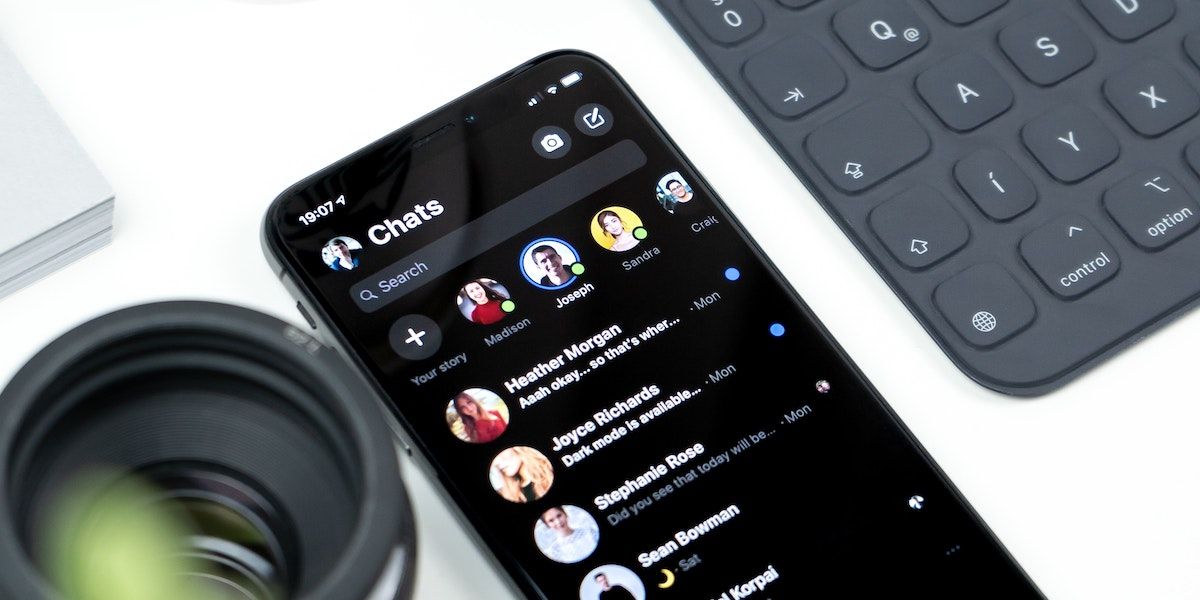
With great monopoly comes great power. Meta’s powers are enormous. Only a few private companies can measure up to its global influence. The company controls some of the world’s most important digital communication tools. With over a quarter of the world’s population using their apps, Meta holds a rare power over how the world communicates.
Perhaps much more concerning is the fact that a disproportionate amount of this power rests on one individual—Mark Zuckerberg. According to thisSEC document , Zuckerberg controls around 60% of Meta’s voting power, effectively bestowing on him dictatorial powers over the billions of people that use Meta’s product.
With such powers, Zuckerberg gets to set the rules. He can unilaterally alter Facebook’s algorithm to determine the kind of information you see. In theory, he can set the privacy options for billions of users or choose which of their messages get delivered.
As evidenced in the buildup to the last two US presidential elections, filtered information can positively or negatively influence global outcomes. Consequently, Meta can easily influence global culture by controlling the kind of information billions of people have access to. That much power, if unchecked, is potentially dangerous.
3. A Privacy Dilemma

From Facebook to Instagram and WhatsApp, Meta’s core products have always been caught up in privacy scandals. In fairness, almost all social media apps have had their fair share of privacy concerns.
However, Meta’s privacy practices are particularly problematic. Meta stands out because of the nature of data it has access to. Based on its user base, the company is the single largest non-government collector of intrusive personal information in corporate history.
Chances are, Meta, through its different apps, knows more about your persona than you could imagine. From seemingly mundane details like your phone number and email to very intrusive ones like your location history, love interest, sexual orientation, relationship status, and biometric information, Meta has it all.
If you use Facebook services, Meta has a complete history of where you’ve been for at least the last year. Once you’ve signed up with any of Meta’s products, you become tracked indefinitely. Facebook, for instance, tracks you even when you’re not actively using any of its products. It does this through data-sharing agreements with hundreds of tech companies whose apps you’re likely using as well.
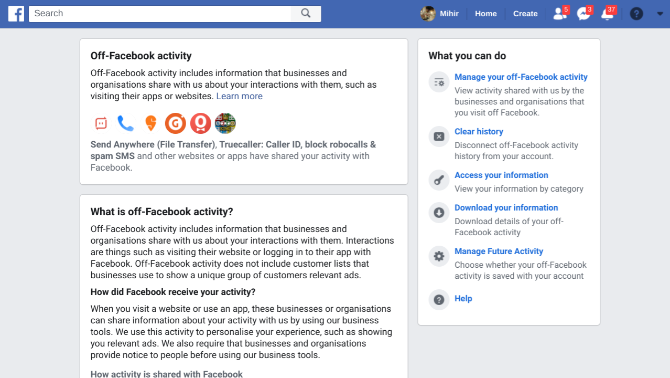
From your music players, browsers, game apps, eBook readers to caller ID apps, most of the software installed on your device is probably sharing your data with Meta. This means the company can determine with frightening precision your taste in music, books, games, the websites you visit, what you do online, and how you interact with technology as a whole.
Not convinced?
- Open your Facebook app.
- Click the menu bar on the top right corner of your app screen
- Scroll down to locate “Settings “ and click on it
- Scroll down and locate the section labeled “Permissions .”
- Find “Off-Facebook activity “ and click on it. Here, you should see and manage a list of apps that are sharing your personal data with Facebook.
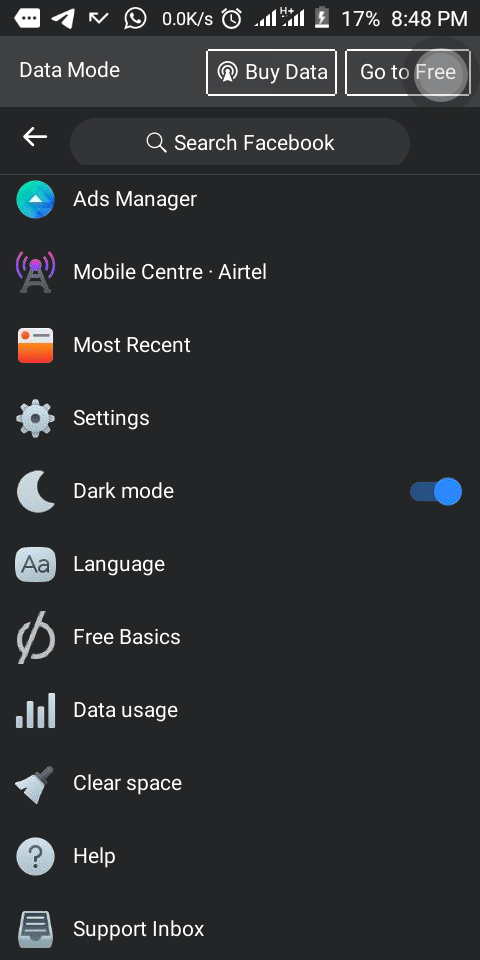
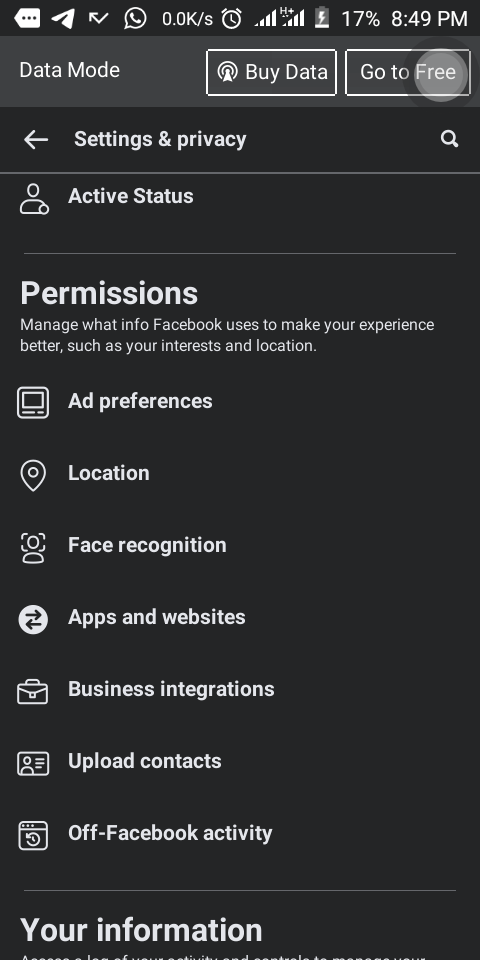
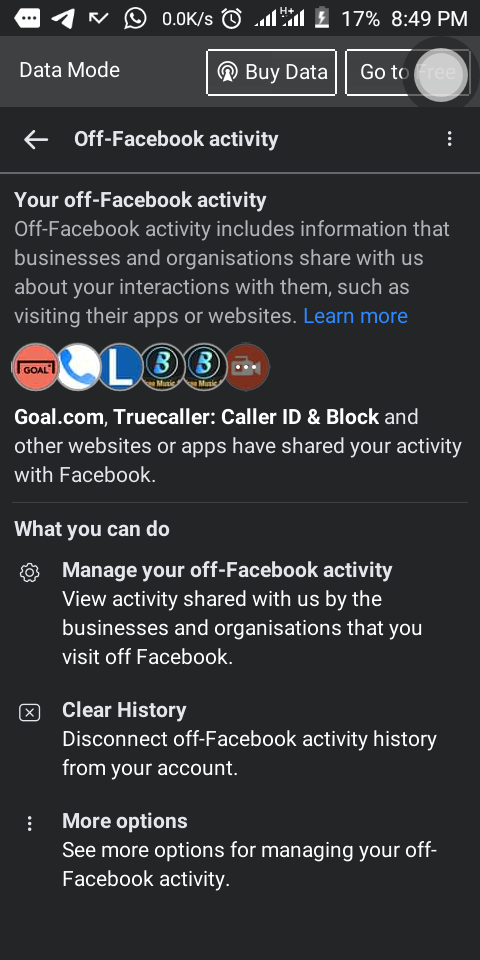
Close
You might be surprised just how much information Meta is getting on you.
As intrusive as this may seem, that’s not the most frightening part. According to an investigative report by theNew York Times , Meta shares this invasive data with as many Big Tech members who care to ask for it. According to the report, in exchange for even more data, Meta gave out slices of its users’ data to companies like Spotify, Netflix, and Amazon. Spotify even reportedly got access to user’s message data—an outrageous privacy infraction by all standards.
Stay Conscious of Meta’s Influence
Some have called for a breakup of Meta; others advocate for sterner policing of the company. Irrespective of the approach that presents a realistic solution to the problem, one thing is sure—Meta is getting too powerful, and we are all becoming victims in its lair.
As you keep using more of its services, more of your private data is accessed. You’re inadvertently fueling its lopsided dominance.
Be proactive. Stay conscious of Meta’s influence. Limit the amount of data you share with Meta’s products and services. If you are afraid you’ve already shared too much, you should get rid of some of the information Meta has on you.
Also read:
- [New] Amplify Impact Strategies for Growing YouTube Fans for 2024
- [New] Download Friends, Share & Connect Effortlessly Online
- [Updated] 2024 Approved The Art of Google Meet Modifications Using Masks & Effects
- [Updated] In 2024, Evolutionary Tools Redefining the Art of Game Capture Beyond FBX
- 2024 Approved Instagram's Best Practices for Sensational Video Loops
- Deconstructing Giants: The Role of Governments in Dismantling Tech Titans
- Digital Doves Cooing for Unity: 7 Online Methods to Bind
- Digital Identity on InstaNFTs
- Discovering Updated Language Within Facebook Pages Labels
- Do Tweets Linger Forever in the Web?
- Earn Elite Marks: Metas' Pay-to-Verify Option
- Effective Techniques for Language Diversity in FB Posts
- Elevate Management: Assign a Page Administrator
- Elevate Your Online Safety: The Benefits of Facebook's New Privacy Design
- Massive Heist: Cryptocurrency Exchange Suffers $80M Loss in Recent Cyber Attack
- Say Goodbye to Vertical and Horizontal Bars in YouTube Movies
- Step-by-Step Tutorial: Enabling and Using Android Apps with Windows 11
- Streamline Document Management with ONLYOFFICE DocSpace Enhanced by ChatGPT Capabilities
- Understanding AOL Mail Downtime: Is It a Global Outage?
- Title: Why Meta's Presence Is a Frightening Reality
- Author: Michael
- Created at : 2025-03-03 19:05:58
- Updated at : 2025-03-04 19:40:26
- Link: https://facebook.techidaily.com/why-metas-presence-is-a-frightening-reality/
- License: This work is licensed under CC BY-NC-SA 4.0.